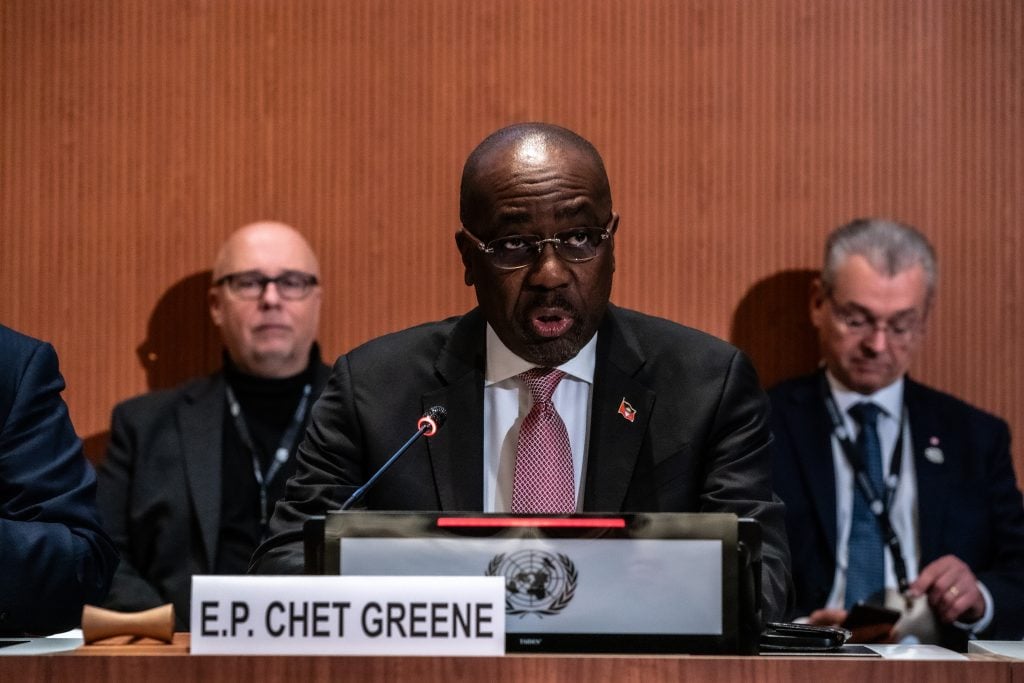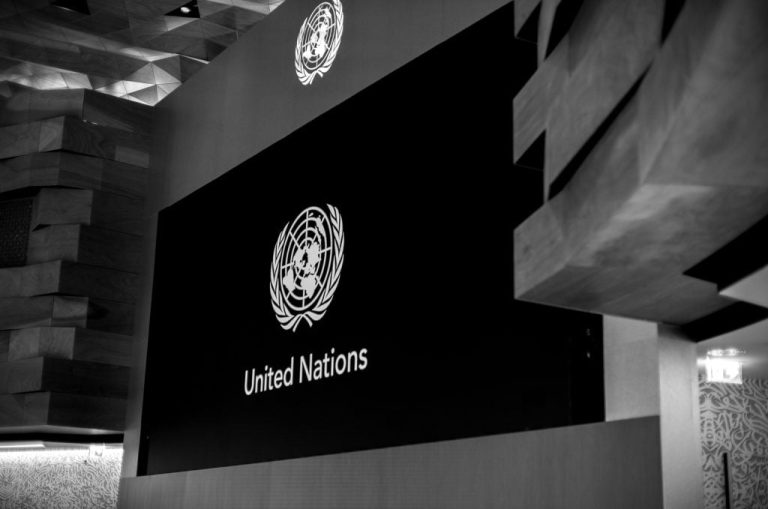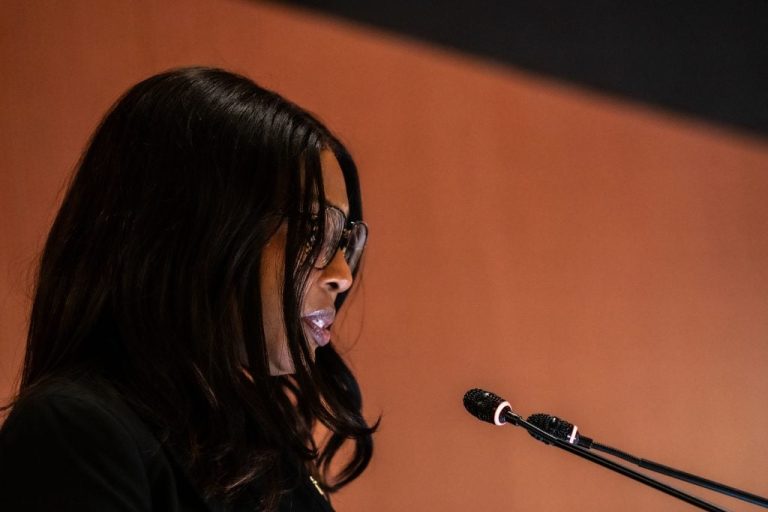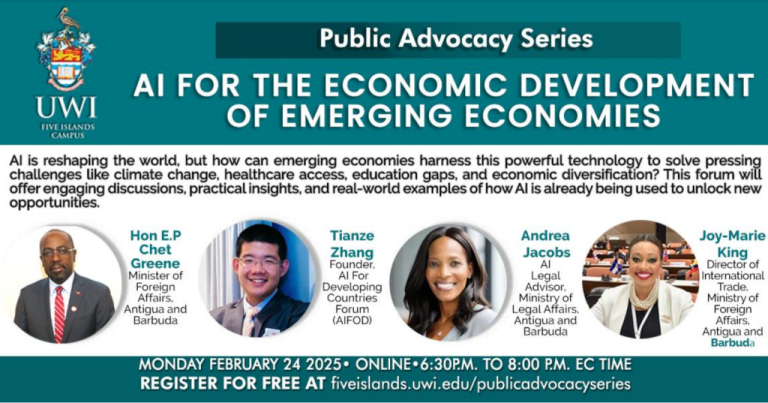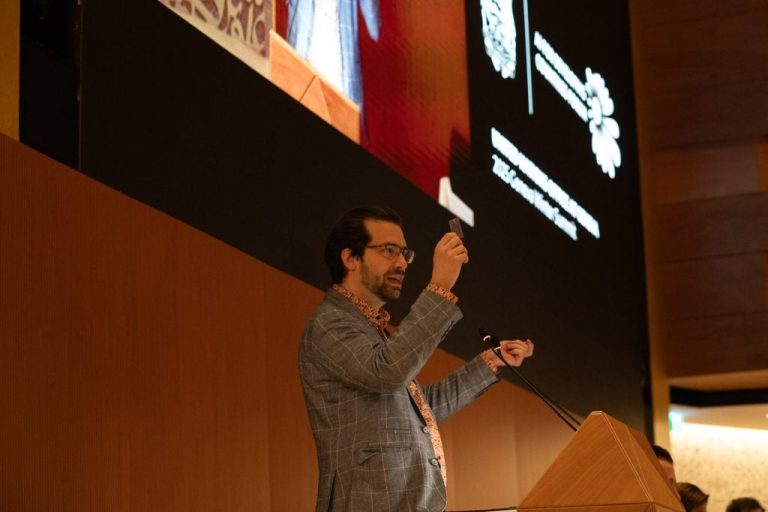Empowering Digital Sovereignty: Minister E.P. Chet Greene’s Vision for Inclusive AI Development
Speech by: His Excellency E.P. Chet Greene, Minister of Foreign Affairs, International Trade and Immigration of Antigua and Barbuda
“I want to start by expressing my immense honor and joy to stand before you this morning at this significant global assembly. Allow me to convey warm greetings from the beautiful and sun-kissed Antigua and Barbuda in the Caribbean. This isn’t a commentary on your current weather, but rather a friendly invitation to experience the brightness of our island.
Esteemed colleagues, honored leaders, and participants from around the globe, it is a true privilege to speak to you today at this critical juncture, the AIFOD forum. I’ve encountered numerous portrayals of AI; however, one that resonates deeply with me comes from Eric Smith, who remarked, “AI is the most transformative technology since electricity.”
As we find ourselves at the brink of the fourth Industrial Revolution, AI opens up extraordinary avenues to reform economies, societies, and governance in developing nations. From optimizing public services to revolutionizing sectors such as agriculture, education, and healthcare, AI holds the promise to tackle challenges that significantly impact the Global South, including climate change, resource inefficiencies, and infrastructure deficits.
At the heart of our future initiatives lies the urgent need for inclusive digital sovereignty. This balance between technological advancement, ethical accountability, and inclusivity is essential. The discourse surrounding digital sovereignty—which encompasses control over digital infrastructure, data management within national borders, and safeguarding individuals’ digital rights and resources—stands central to our conversations today.
Establishing robust control mechanisms as we develop and deploy AI is critical. By doing so, we can ensure the equitable distribution of AI’s advantages among all nations, including small island states like Antigua and Barbuda. The pressing question is: what should this inclusive future look like?
In my bold suggestion, we must prioritize the establishment of clear guidelines and regulations. Attaining this can be realized through collaborative efforts between governments and organizations to develop frameworks that govern the advancement and utilization of AI. Such regulations should actively prevent the monopolization of AI technologies and uphold the integrity of individual data and rights.
The essence of digital sovereignty is about ensuring that nobody is left behind. We must prioritize equal access to the opportunities offered by AI in crucial areas such as healthcare, education, finance, and governance. Moreover, AI systems should aim to foster social good and cater to public interests rather than solely amplifying corporate gains.
Our focus should be on promoting the responsible evolution of AI, not merely on its rapid growth. Only through such responsible and sustainable development of AI technologies can we root our efforts in principles of inclusivity, ethical responsibility, and digital sovereignty.
In conclusion, I urge us all to acknowledge that the collective strength of the Global South lies in our unity, resilience, and dedication to a future where technology serves humanity, rather than the other way around. I reaffirm Antigua’s commitment to advancing inclusive digital sovereignty and nurturing AI systems that propel sustainable development. Together, we can empower the South to assert its rightful position at the vanguard of technological innovation, ensuring that the advantages of AI are shared equitably among all nations.
Thank you.”

